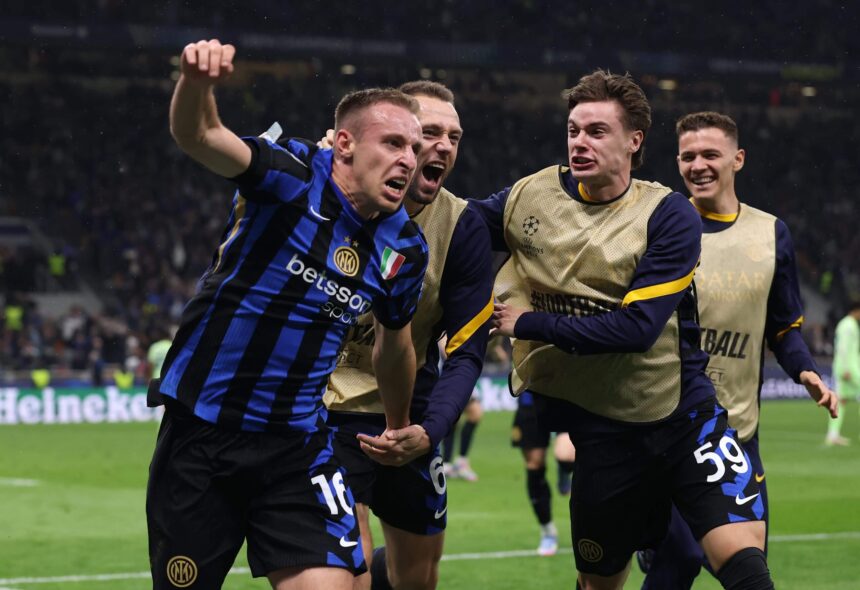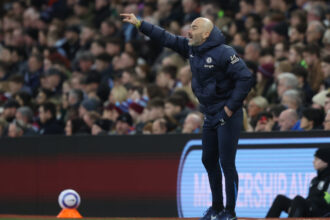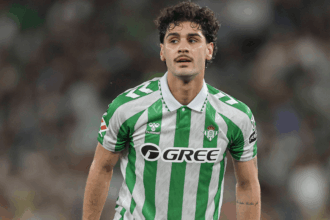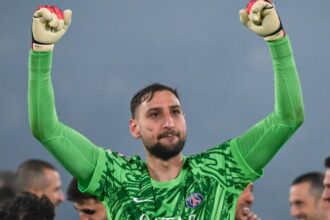Paris Saint-Germain beat Arsenal in the second semi-final on Wednesday night to set up a Champions League final against Inter at the end of this month.
The Serie A club were beaten finalists two season ago, while PSG have never been European champions.
Here The Athletic brings you all the information on the final, the finalists and how they got there.
What happened in the semi-finals?
Inter and Barcelona put their hat in the ring for the best Champions League semi-final of all time, with their two clashes.
The first leg was a six-goal thriller at the Estadi Olimpic Lluis Companys. Then came Tuesday’s second leg.
Inter took a 2-0 lead before half-time, but Barcelona were level within the first 15 minutes of the second half. Raphinha thought he had won the game with his 87th-minute goal before Francesco Acerbi popped up in the box and scored a 93rd-minute equaliser. Davide Frattesi’s extra-time goal secured the victory for Inter and their passage to their second Champions League final in three seasons.
Inter celebrate their extra-time winner against Barca (Carl Recine/Getty Images)
PSG won 1-0 at the Emirates after an early goal from Ousmane Dembele put the Ligue 1 side in control and though Arsenal battled back and had their chances, goalkeeper Gianluigi Donnarumma’s heroics secured a first-leg lead.
In the second leg in Paris on Wednesday, PSG took a 2-0 lead through a goal in either half from Fabian Ruiz and Achraf Hakimi. Bukayo Saka pulled one back for Arsenal in the 76th minute, but it proved to be only a consolation as the hosts ran out 3-1 aggregate winners.
When and where is the final?
The final will take place on Saturday, May 31 at the Allianz Arena in Munich, Germany — home of Bundesliga champions Bayern Munich.
The 75,024-capacity stadium opened in 2005 and was the venue for the first match of the following year’s World Cup, and also one of its semi-finals. The ground staged several European Championship matches in 2021, when the tournament was played in cities all across the continent, and 2024, with Germany as the host nation.
It was also the venue for the 2012 Champions League final, when Chelsea beat Bayern on penalties.
How to watch the final
The Champions League final will be available to watch via Paramount+ in the United States. It will also be shown by Spanish sports network TUDN.
In the UK, the game will be available on TNT Sports (or can be streamed via discovery+).
What to expect from the two finalists?
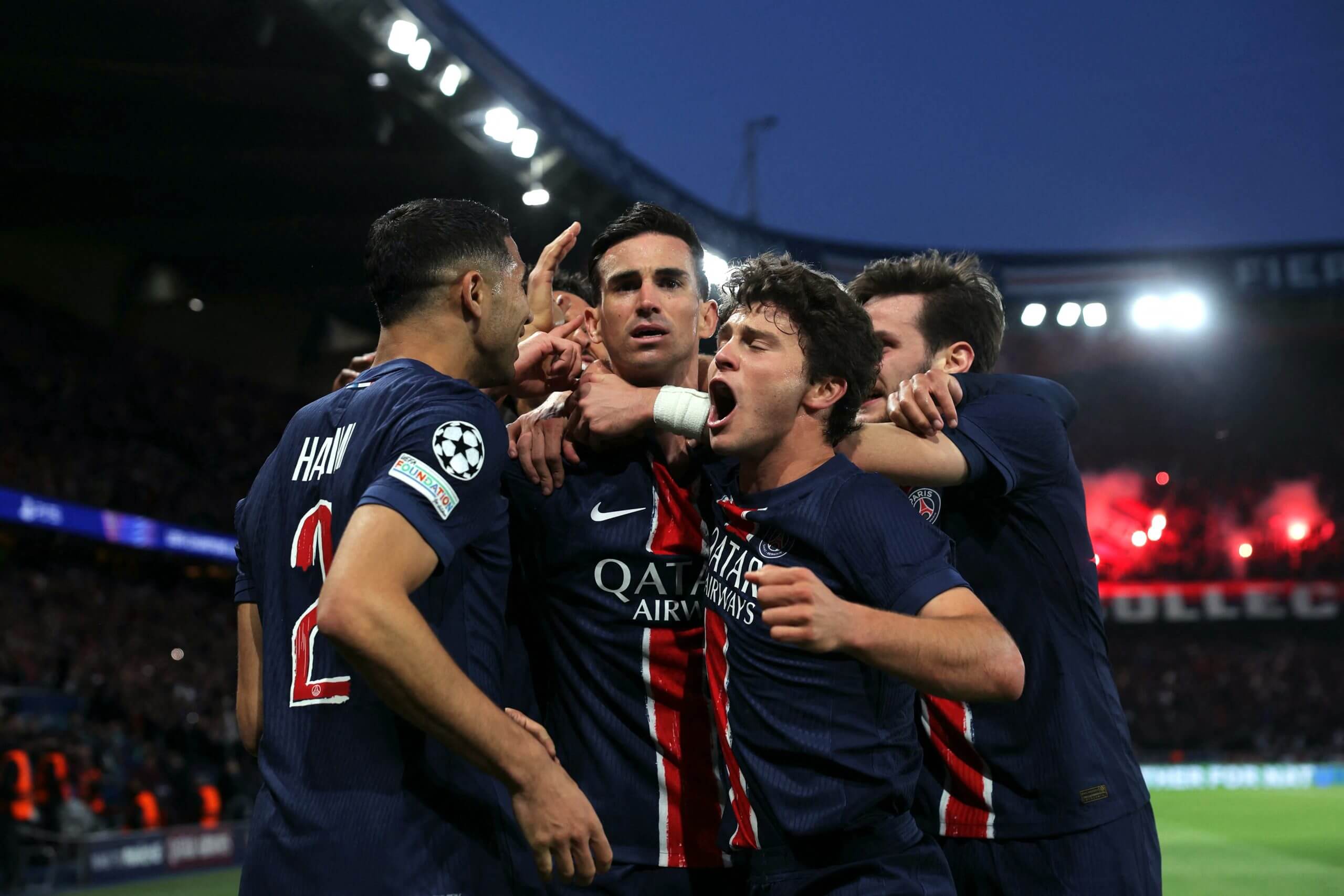
PSG beat Arsenal on Wednesday (Thomas Samson/AFP via Getty Images)
Everything has changed at PSG since their last Champions League final appearance
Analysis by Liam Tharme
The past three years have all been about Luis Enrique moulding PSG to his tactical ideals after arriving in summer 2022, and he has evolved them a long way from the losing Champions League finalists of 2020.
He has improved them out-of-possession especially, from a team that once hardly pressed (when they had the attacking starpower of Kylian Mbappe, Neymar and Lionel Messi which offered so much going forward but little besides that) to one of the top pressing teams in Europe this season. Their ability to go man-for-man and suffocate opponents in build-up will make for a fascinating tactical battle considering how strong Inter are in build-up play.
Advertisement
In attack, to call them a 4-3-3 would be disingenuous because they are so fluid and dynamic. They play with so much width, and their wingers will be massive threats running in-behind Inter’s wing-backs, on transition especially. Their midfield trio (Joao Neves, Vitinha, Fabian Ruiz) has the perfect balance of technical quality, industriousness and physicality, which should be able to overrun Inter’s three.
Their big threat going forward is creating cutback situations and drawing teams onto them before playing through the press — see their near-identical goals away at Arsenal and Liverpool in the knockout rounds. Ousmane Dembele’s reinvention as a false nine, from right wing last season, encapsulates the fluidity, Frenchness and cutting-edge that this new-look PSG team are all about.
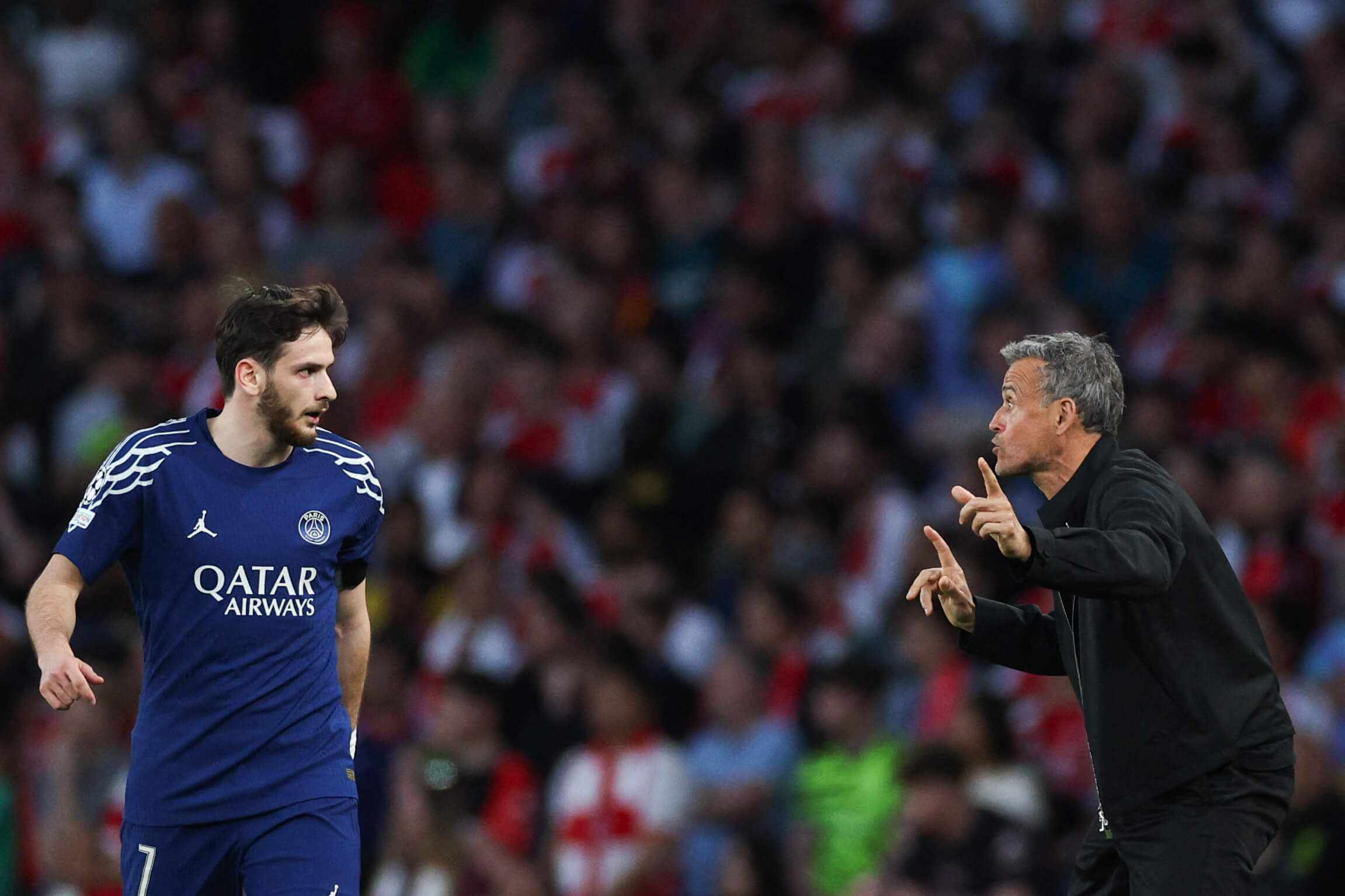
(ADRIAN DENNIS/AFP via Getty Images)
What’s different?
Almost everything. Club captain Marquinhos and centre-back Presnel Kimpembe (now a squad player with long-standing injury issues) are the only remaining players from the defeat by Bayern five years ago.
PSG went all-in to try and win it by bringing in ageing stars in Messi, Neymar and Sergio Ramos, but have found success by overcorrecting in the other direction and buying younger, mouldable talent, and more French players.
There is an established academy-to-first-team pathway (a sign of progression considering they lost the final in 2020 to a Kingsley Coman goal, a Paris-born player who was once at PSG), which has helped add squad depth and enabled them to rotate in domestic games and stay fresh for Europe — and for the first time ever, PSG went unbeaten en route to winning Ligue 1 after 28 games.
Bradley Barcola (Lyon) and Desire Doue (Rennes) are examples of talent they have recruited from elsewhere in Ligue 1, meanwhile left-back Nuno Mendes (Sporting CP), centre-back Willian Pacho (Eintracht Frankfurt) and pivot Neves (Benfica) were all under 23 at the start of the season.
PSG versus Inter will be a meeting of the youngest versus the oldest team from the Champions League knockouts. One senses that this is an extended peak for Inter under Simone Inzaghi, but just the start for PSG, who made the final four last season and have gone one better this time.
This is about more than just unfinished business for Inter
Analysis by James Horncastle
When Inter reached the final two years ago, one of the narratives pushed in support of the false notion that it was going to be a one-sided affair was their path to Istanbul.
After finishing runners’ up in the group behind Bayern, they played Porto, Benfica and Milan. The consensus view was Inter (and Milan and Napoli for that matter) were on the easy side of the draw.
Advertisement
This time around Inter secured a bye after finishing joint second in the league phase. They conceded once in eight games, including trips to Manchester City and visits from Arsenal.
A different side was shown in the knock-outs. After keeping things tight through the autumn and winter, Inter put four past Bayern in the quarter-final and won at the Allianz through a late winner from Frattesi.
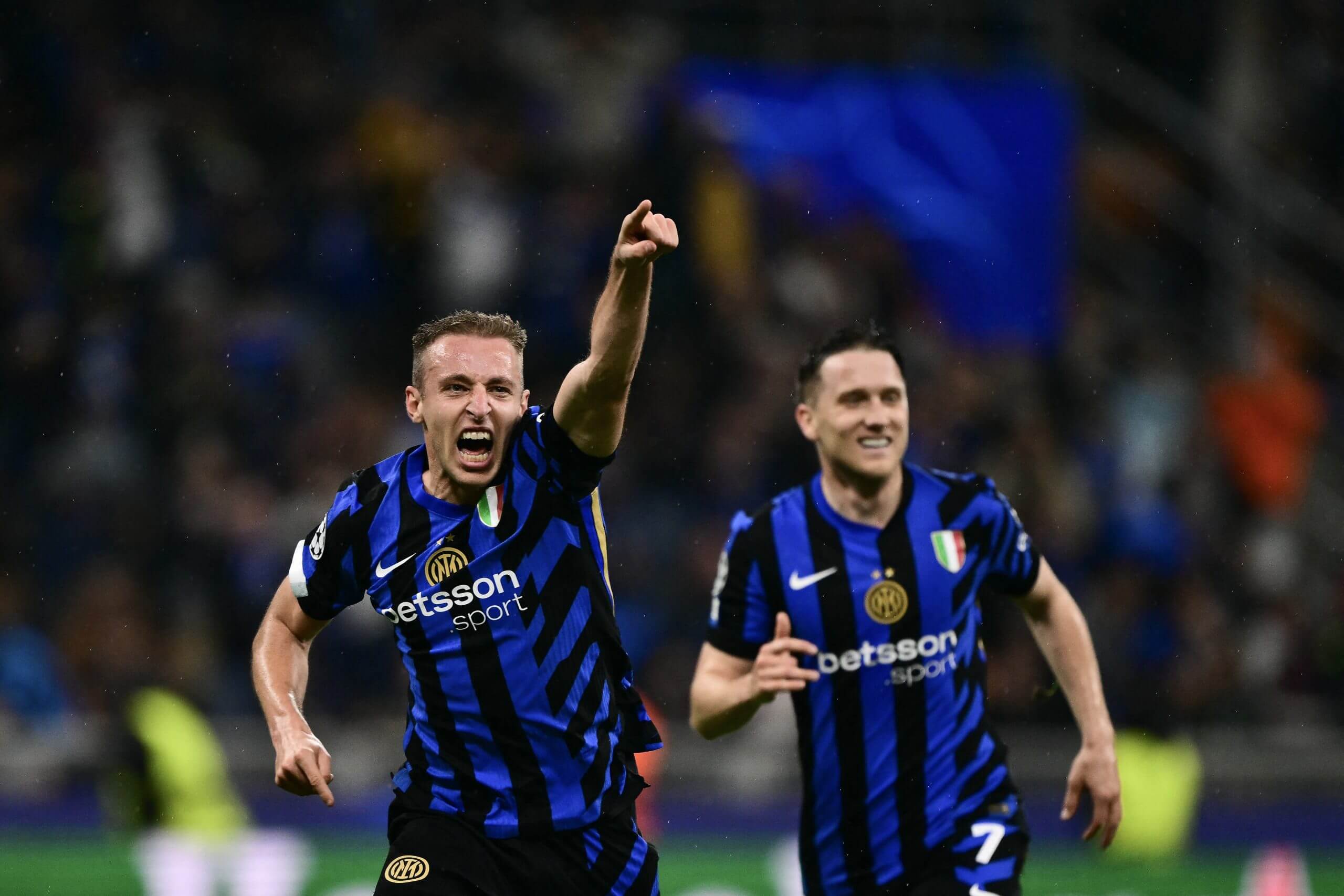
(Marco Bertorello/AFP via Getty Images)
His future was in jeopardy during the January transfer window amid reports of a return to hometown club, Roma. Thank goodness, he did not move. It was Frattesi, again, who decided the epic semi-final against Barcelona. His goal in extra-time was Inter’s seventh of the tie.
They are a team that can do everything; play modern and old school, defend as a block, and attack with fluidity. As the oldest team left in the competition, Inter alternated looking spent against Barcelona with raging against the dying of the light.
The final in Munich is more than about unfinished business for Istanbul. It might be the last chance some of these players get to win this competition.
Inter would be worthy winners
Analysis by Ahmed Walid
If there’s one part of their game that screams ‘Simone Inzaghi’s Inter’, it’s the slow-then-fast attacks which seem to come from nowhere to slice through their opponents in seconds — it’s so quick that observers often mistake it for a simple counter-attack.
When you couple that approach with Inter’s rotations between their back three and the midfielders in the build-up phase, it paints a beautiful portrait as Inter’s 3-5-2 effortlessly shape-shifts to cut through the opposition.
The aim is to combine quickly to find midfield runners behind the defence, or to switch the play to find the team’s wing-backs, Denzel Dumfries and Federico Dimarco, in space.
In midfield, Nicolo Barella, Hakan Calhanoglu, and Henrikh Mkhitaryan are the main orchestrators behind the majority of Inter’s attacking moves.
Inzaghi’s side know how to break down a deep defence too, with their advancing wide centre-backs a prominent feature of the attack, which is led by Marcus Thuram and their captain Lautaro Martinez.
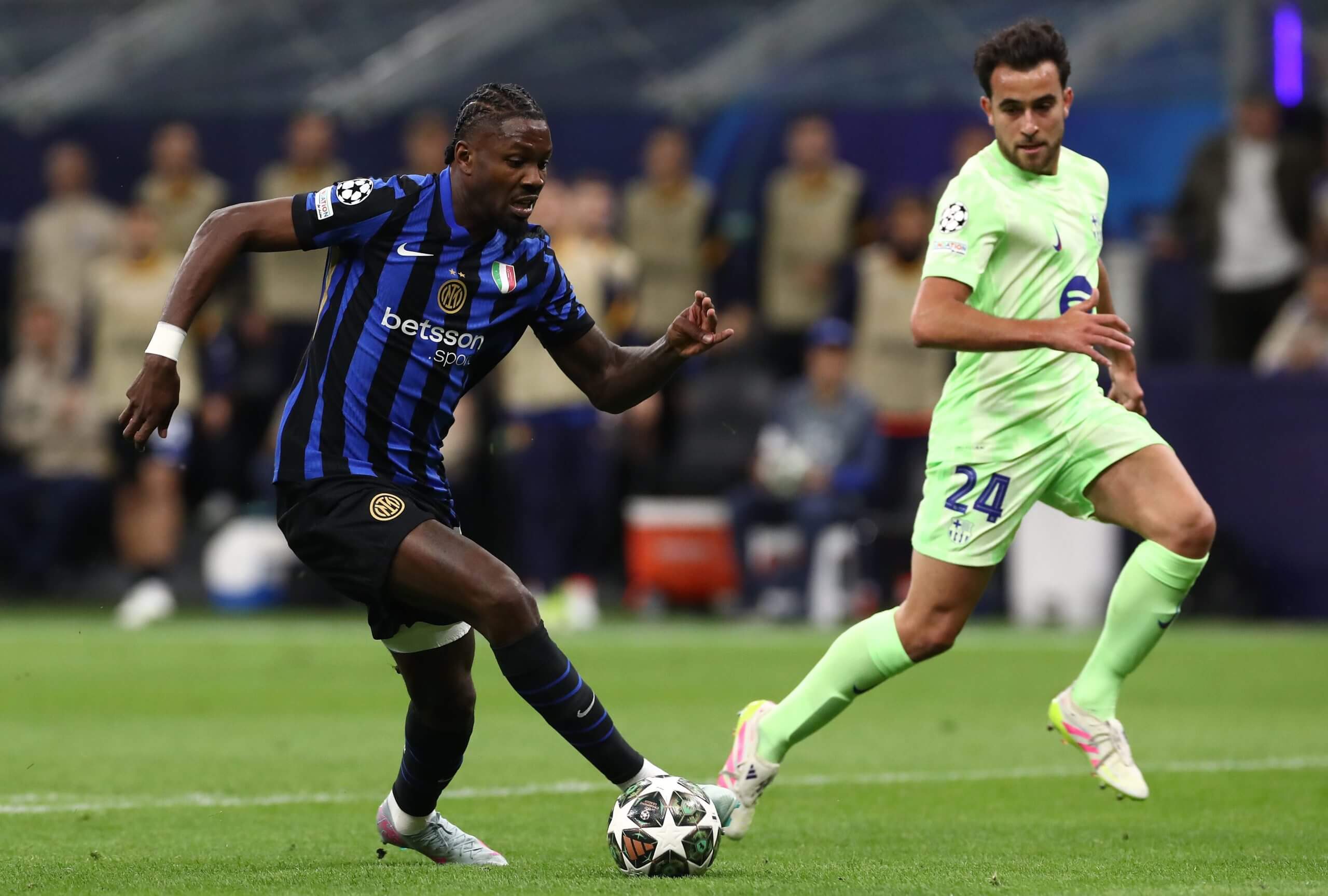
(Marco Luzzani/Getty Images)
In addition, Inter’s outswinging corners have played a huge part in their success in 2024-25, while their counter-attacking threat was on show in Tuesday’s 4-3 victory against Barcelona at San Siro.
Defensively, Inter know how to sit deep in their penalty area — even if the ties against Bayern and Barcelona weren’t the best proof of that working perfectly — while goalkeeper Yann Sommer provides a superb safety net behind the back five.
Can they win it? Absolutely — and they would be worthy victors too.
How much money have the two teams earned?
UEFA announced in March last year that the total prize pot for clubs competing in the 2024-25 Champions League would be €2.47billion (£2.12bn; $2.81bn).
From the league phase
- Clubs earn €2.1million per win and €700,000 per draw
- Clubs earn money based on their final ranking in the league phase, where everyone plays eight games. This is calculated by “shares” of €275,000. The first-placed team after the league phase ends (Liverpool) earned 36 shares for finishing top of the 36-team table (i.e. 36 x €275,000), second-placed Barcelona earned 35 shares, and so on
- Clubs that finished first to eighth in the league phase (so qualifying automatically for the round of 16) gained an extra €2m. Clubs who came ninth to 16th (qualifying for the play-offs) earned €1m
From the knockout rounds
- Qualification for the knockout round play-offs: €1m per club
- Qualification for the round of 16: €11m per club
- Qualification for the quarter-finals: €12.5m per club
- Qualification for the semi-finals: €15m per club
- Qualification for the final: €18.5m per club
- The winners can expect to receive an additional €6.5m.
- The two clubs that qualify for the 2024 Super Cup (a pre-season game between the winners of the Champions League and second-tier Europa League) can each expect to receive €4m, with whoever comes out on top in that match receiving an additional €1m.
How much will the finalists earn?
The winners will get $25m (£21.2m; $27.8m) while the runners-up will receive €18.5m (£15.7m; $20.5m).
(Top photo: Christian Kaspar-Bartke/Getty Images)


